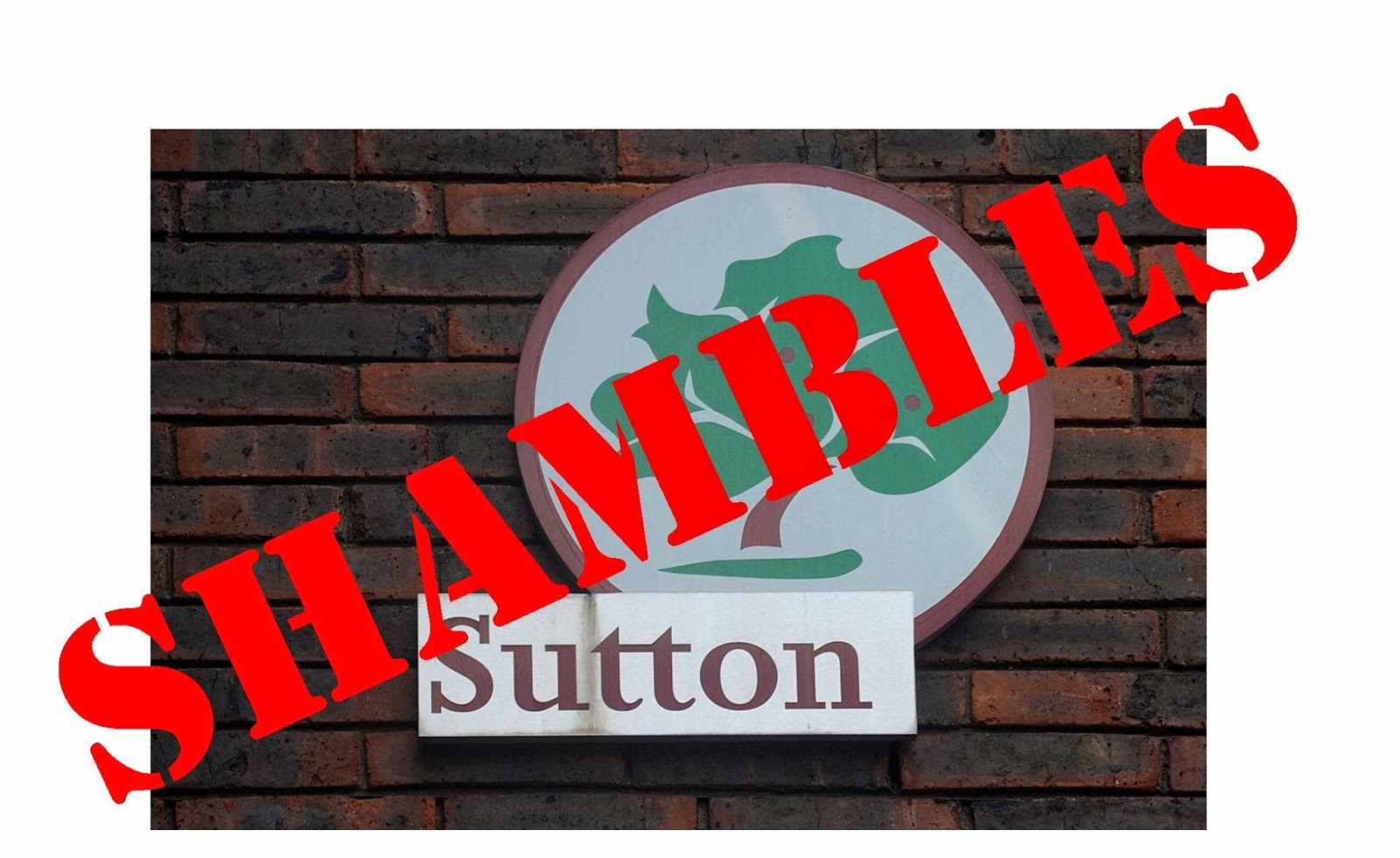
Conservatives Force Council U-Turn on London Living Wage
At last Monday’s Full Council Meeting, the Conservatives in Opposition tabled the motion ‘This Council endorses the wider campaign for, and commits to, implementing the London Living Wage.’ This had been raised at a previous meeting but one of the LibDem Councillors had ruled it out saying Sutton Council could not afford it. Cllr Graham Whitham tabled this motion and the item was duly debated by Councillors. The vote was unanimous. Cllr Whitham’s opening comments were:

Cllr Graham Whitham tabled the motion on the London Living Wage at Monday’s Full Council Meeting.
We often hear how parties can fall into the trap of ‘knowing the cost of everything and the value of nothing’. Tonight members will have the opportunity to demonstrate the value they place, on a living reward for those who have the work ethic. As Boris Johnson said when implementing the LLW ‘it really is a win for employers as paying a fair wage fosters a loyal and motivated workforce while at the same time continues to pull many Londoners out of poverty”.
LLW just consider those three words and look at the squeezed middle word the word ‘living’ which all parties should care about. In the UK we now see the Red Cross starting food collections for families to tackle what they see as the current food poverty challenge. This is the first time in my lifetime and I was born just after the Second World War with all the long term implications that conflict had for this country.
The Prime Minister correctly articulates support for hard working families and the Deputy Prime Minister draws attention to what he terms are the working poor. The paradox of low pay is that it is these very categories who are often the victims of low pay. In many the mother is in a minimum wage job, trying to pay the bills, for the question of low pay is often a gender question with low pay mainly focused on women’s employment.
There is a mythology that paying a proper wage, the LLW, would kill off jobs. Although the LLW may be seen as a cost for employers they will also benefit by people getting into work with a reduced reliance on benefits in the longer term, enabling Government spending to be targeted on more necessary budgets and whilst increasing spending in the local economy.
I would like to give Members, indeed everyone sitting here, something to think about. Do you know how much per hour you are on? Possibly not. But if your income exceeds £15,500 then you are in excess of the LLW, so how many of you doing a 35 hour week or its equivalent are on less than that?
Ed Miliband made reference to 2 nations, in essence picking up Benjamin Disraeli’s theme of One Nation. Nowadays we see this as Social Conservatism but whatever name the various parties attach to this belief their aims are the same. Nick Clegg’s working poor need a living wage so do younger people seeking their first job. We do not need a system where people in employment are potential victims of pay day loan sharks. In Britain, and for the people of the London Borough of Sutton, we need a system as rightly stated by Ian Duncan Smith where work pays and by Boris Johnson who believes, as we do, that ‘decent hard working Londoners deserve proper reward for their labours’,
In his second speech on this issue Cllr Whitham said:
It is Government policy to get the welfare budget down and both parties in the coalition subscribe to the philosophy that work must pay. When it pays to work, the welfare budget will go down and tax receipts increase. In all probability, in the short term, the wider state support of wages will remain but we can make a start locally. If we do not, in the end, the cost will finish up here.
Currently welfare is effectively subsidising low pay. When I started in politics it was a given that the state should not be subsidising nationalised companies. Why are we now effectively subsidising privately owned companies which in certain cases, such as the railways and energy companies, are paying substantial dividends to shareholders.
Last year the UK Low Pay Recovery report demonstrated that more than 75% of the net rise in jobs in the previous 3 years had come in low paid sectors with an average wage of less than £8 per hour.
In the Centre for London report , ‘Settle for Nothing Less’, the percentage proportion of workers paid at or below the national minimum wage in the London Boroughs shows Sutton at 5.9%, this compares with a London average of 2.9%. Only 4 other London authorities have a worse record. This statistic reflects poorly on this Borough. When this Authority next makes an announcement of bringing jobs into the Borough we need to seriously look at what sort of jobs they are and what they pay. This is why this Motion endorses the wider campaign for the LLW.
If you take the average working week as being 35 hours and you are on the minimum wage you would have to work 49 hours to achieve an income equivalent to a 35 hour week at the LLW. If you then take into account holidays you would need to work in excess of 50 hours per week. The situation is now worse than when I first went out to work in 1963 on a 42 hour week.
A commitment to the LLW still only sees an income between £15,000 and £16,000 for a basic working week and that in itself is some £10,000 below the London average wage. All Members on any form of Responsibility Allowance are virtually on or greatly in excess of the LLW and of course, this is not a principal source of income.
I started out tonight by saying that we often hear how parties can fall into the trap of ‘knowing the cost of everything and the value of nothing’. This Motion tests each Member on their priorities when it comes to Council spending and their own values.
This Motion tests each Member as an individual and their personal commitment to ideals of fairness and compassion.
The thrust of any Government should be to do what it sees as being right, not necessarily what is easy, this Council should do what is right even if it is not easy.




